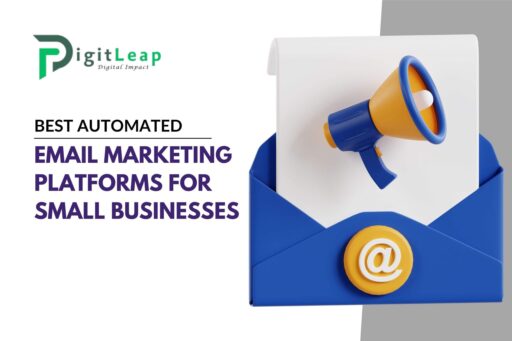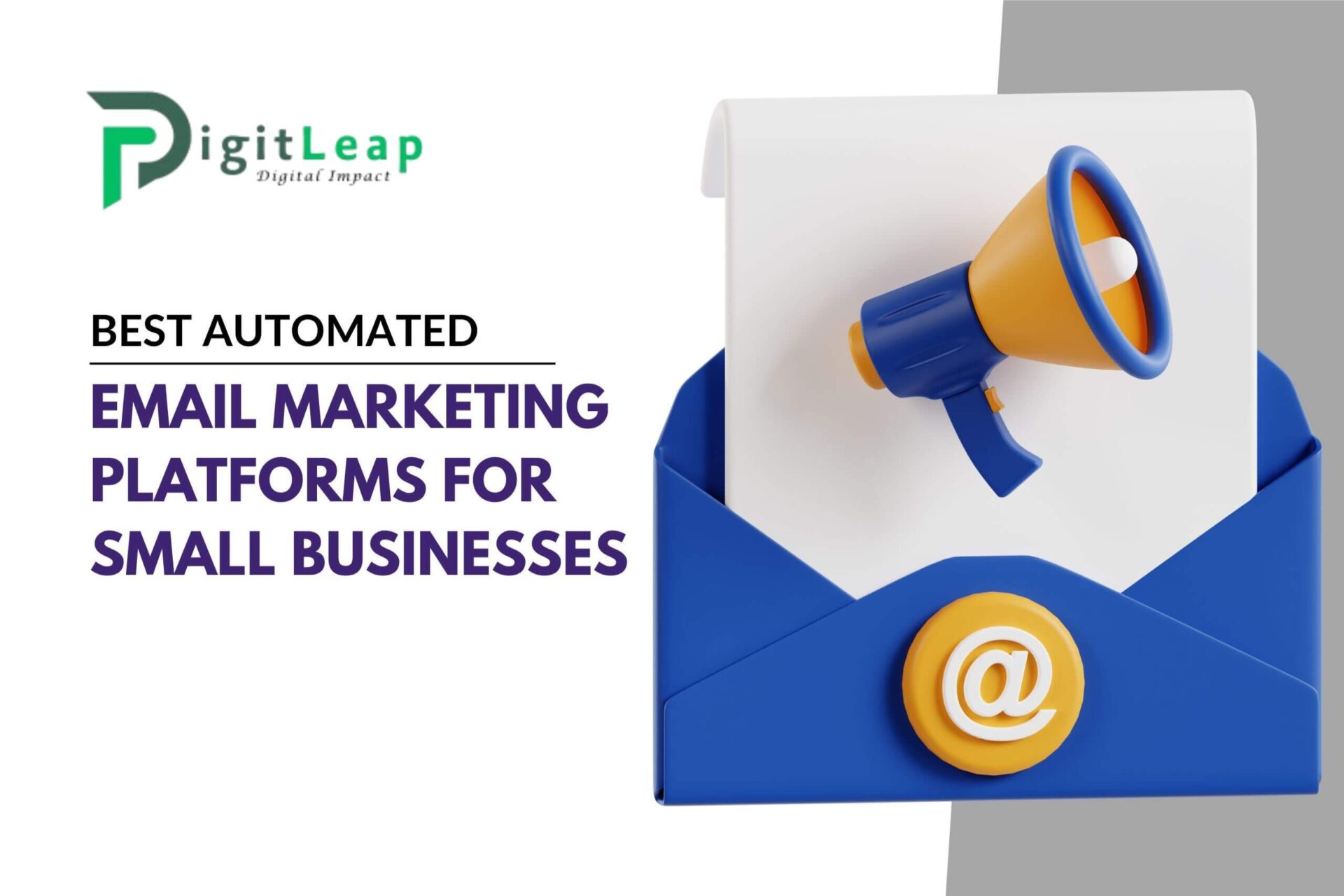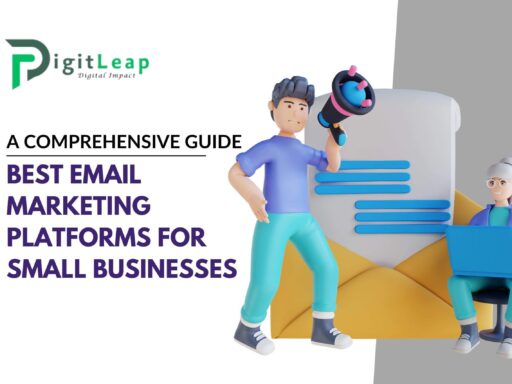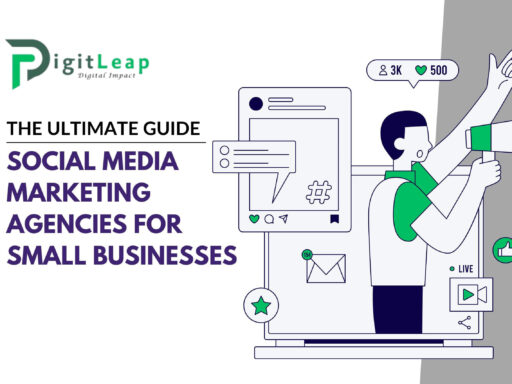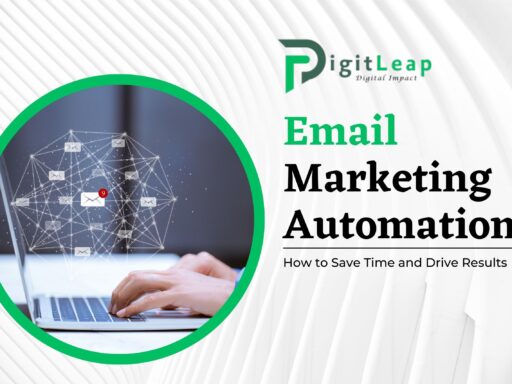Best Automated Email Marketing Platforms for Small Businesses
Email marketing automation has become an indispensable tool for businesses looking to save time while maintaining effective customer engagement. Automated platforms streamline the process, allowing you to send targeted, personalized emails without manual intervention. This guide will explore the best-automated email marketing platforms available today, ideal for small businesses aiming to scale their efforts with minimal effort.
1. Introduction
What is Email Automation?
Email automation refers to the process of sending emails to your audience based on triggers or scheduled times, without manual intervention. Automated emails can be triggered by a variety of actions, such as signing up for a newsletter, completing a purchase, or abandoning a cart on an e-commerce website.
Benefits of Automation for Small Businesses
For small businesses, automation is a game-changer. It allows you to maintain consistent communication with customers while saving time and resources. Automated emails can nurture leads, boost engagement, and increase sales—often without additional effort once set up.
2. Key Features to Look for in an Automated Email Marketing Platform
Ease of Use
A user-friendly platform is crucial for small business owners who may not have a dedicated marketing team. Look for platforms with drag-and-drop editors and pre-built automation workflows.
Personalization Capabilities
The ability to personalize emails based on user data—such as their behavior, preferences, or purchase history—can significantly improve engagement rates. Platforms with advanced personalization options will allow you to tailor messages to individual customers.
Advanced Segmentation
Segmenting your email list based on various criteria, such as demographics, behaviors, or purchase history, helps in delivering more relevant content to your audience. Platforms with advanced segmentation options offer greater flexibility in targeting specific customer groups.
Workflow Automation
Automated workflows help businesses map out a sequence of emails that are triggered based on user behavior or actions. For example, an email thanking a customer for their purchase can be automatically followed by a product recommendation or feedback request.
Analytics and Reporting
Detailed analytics are essential to measure the effectiveness of your campaigns. You should be able to track open rates, click-through rates, and conversion rates, among other metrics, to optimize future campaigns.
3. Best Automated Email Marketing Platforms for Small Businesses
There are many email marketing platforms available, but a few stand out when it comes to automation features, ease of use, and affordability. Below are the top platforms small businesses should consider for automated email marketing.
4. ActiveCampaign: Best for Advanced Automation
ActiveCampaign is well-known for its powerful automation capabilities. It allows small businesses to create complex workflows and integrate various customer touchpoints.
Features of ActiveCampaign
- Advanced email automation builder
- Dynamic content for personalization
- CRM integration for lead management
- Triggered emails based on user behavior
Pros and Cons of ActiveCampaign
Pros:
- Best-in-class automation features
- Great for businesses that need advanced segmentation
- Robust reporting and analytics Cons:
- Steeper learning curve compared to simpler platforms
- Can be expensive for small businesses with larger contact lists
5. Mailchimp: Best for Beginners
Mailchimp remains a popular choice, especially for businesses new to email marketing. It offers easy-to-use automation features along with a generous free plan.
Features of Mailchimp
- Pre-built email automation templates
- Simple drag-and-drop editor
- Free plan for up to 500 subscribers
- Integration with e-commerce platforms like Shopify
Pros and Cons of Mailchimp
Pros:
- Very easy to use
- Great for beginners with basic automation needs
- Comprehensive analytics and reports Cons:
- Limited automation features on the free plan
- Paid plans can get pricey as your list grows
6. HubSpot: Best for All-in-One Marketing Solutions
HubSpot is more than just an email marketing tool; it’s a full marketing automation suite. It’s great for businesses looking for an all-in-one solution that integrates email with other marketing channels.
Features of HubSpot
- Automated email workflows
- Lead tracking and CRM integration
- In-depth analytics and reports
- Comprehensive marketing automation tools
Pros and Cons of HubSpot
Pros:
- All-in-one marketing solution
- Seamless integration with other HubSpot tools
- Powerful CRM features Cons:
- Higher pricing tiers
- Can be overkill for small businesses that only need basic automation
7. Drip: Best for E-commerce Businesses
Drip is tailored specifically for e-commerce businesses, offering powerful automation tools to help online stores increase sales and engagement.
Features of Drip
- Triggered emails based on user behavior
- Personalized product recommendations
- Advanced segmentation for targeted campaigns
- Integration with popular e-commerce platforms like Shopify and WooCommerce
Pros and Cons of Drip
Pros:
- Perfect for e-commerce stores
- Great for personalization and segmentation
- Powerful analytics and reporting Cons:
- Limited to e-commerce, not suitable for other industries
- Higher starting price compared to some alternatives
8. Klaviyo: Best for Data-Driven Automation
Klaviyo is another excellent option for e-commerce businesses, offering robust data-driven automation features that allow for highly personalized email campaigns.
Features of Klaviyo
- Advanced segmentation and targeting
- Behavioral triggers for abandoned carts, post-purchase follow-ups, and more
- Seamless integration with e-commerce platforms
- Dynamic email content based on user behavior
Pros and Cons of Klaviyo
Pros:
- Excellent for personalization and segmentation
- Ideal for e-commerce businesses
- Data-driven approach for more effective campaigns Cons:
- Can get expensive as your subscriber list grows
- Designed specifically for e-commerce, limiting its appeal for other sectors
9. Moosend: Best for Affordability and Simplicity
Moosend is a budget-friendly platform that offers powerful automation features at a lower price point, making it a great option for small businesses with limited budgets.
Features of Moosend
- Easy-to-use automation workflows
- Advanced segmentation options
- Unlimited emails on all plans
- Real-time reporting and analytics
Pros and Cons of Moosend
Pros:
- Affordable pricing
- User-friendly interface
- Great for small teams Cons:
- Limited features compared to more advanced platforms
- Customer support can be slow
10. Sendinblue: Best for Comprehensive Communication
Sendinblue stands out as a platform that offers both email marketing and additional communication tools, such as SMS and chat. It’s great for businesses looking to manage all customer interactions in one place.
Features of Sendinblue
- Marketing automation for emails and SMS
- Pre-built automation workflows
- Transactional email capabilities
- Built-in CRM and lead scoring
Pros and Cons of Sendinblue
Pros:
- Affordable plans with a generous free tier
- SMS marketing integration
- Easy-to-use automation builder Cons:
- Fewer templates compared to other platforms
- Limited reporting features on the free plan
FAQs
Q1. What is the best automated email marketing platform for small businesses?
ActiveCampaign is often considered the best for advanced automation, while Mailchimp is perfect for beginners due to its ease of use.
Q2. Can I personalize automated emails?
Yes, most platforms, including ActiveCampaign, Mailchimp, and Klaviyo, offer personalization features that allow you to tailor your emails to individual customers based on their preferences and behavior.
Q3. Is automated email marketing expensive?
Most platforms offer tiered pricing plans based on the size of your email list and the features you need. Some, like Sendinblue and Moosend, offer affordable plans for small businesses.
Q4. Can I integrate e-commerce platforms with these email marketing tools?
Yes, platforms like Drip, Klaviyo, and Mailchimp offer seamless integrations with e-commerce platforms like Shopify and WooCommerce.
Conclusion
Choosing the best automated email marketing platform for your small business depends on your specific needs and budget. If you’re just starting out, Mailchimp or Moosend might be the best choice. However, if you’re looking for more advanced automation, ActiveCampaign and Drip offer powerful features tailored to growing businesses.

